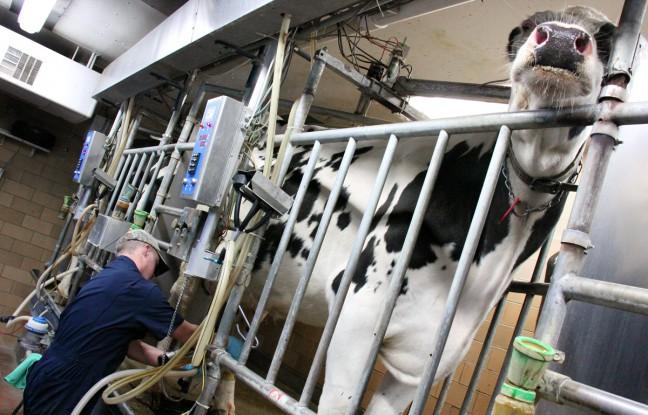Amid a statewide decline of dairy farms, the University of Wisconsin is aiming to provide programs to assist young and aspiring farmers.
Wisconsin loses about 500 dairy farms a year, Joe Tomandl III, program director for the Dairy Grazing Apprenticeship of Grassworks, Inc., said. The current number of dairy farms in the state is about 12,000, and a continuation of this trend would eliminate the industry in one generation, he said.
The average age of farmers in the state is 58, right around many people’s typical retirement age. Several have no determined successor, and seeing fresh faces in the farming community is not incredibly common, he said.
“If you’re outside of a farming family, you need that pathway,” Tomandl said. “What the Dairy Grazing Apprenticeship has done is created that pathway.”
The apprenticeship is a two-year, 4,000 hour program that has been around since 2010. With just under 300 hours of classroom work, the apprenticeship provides extensive hands-on training and a “learn while you earn” bonus.
It tends to be easier for aspiring farmers to simply take over the family farm, so the apprenticeship acts as a large networking tool for those without a farming background.
“If you’re looking to become a farmer, the apprenticeship program can get you out there in the country, on a farm and meeting people,” Nadia Alber, outreach coordinator for the Wisconsin School for Beginning Dairy and Livestock Farmers said.
Alber likened the apprenticeship to match.com, saying those interested fill out an application online, and “master farmers” reach out to schedule visits to determine a good mentoring match.
The apprenticeship works with Wisconsin School for Beginning Dairy and Livestock Farmers because it is housed with UW’s Farm and Industry Short Course and the Center for Integrated Agricultural Systems. Students have options to complete the classroom portion through Farm and Industry Short Course or online through Center for Integrated Agricultural Systems.
FISC has been generally successful and will see its 130th class graduate this year.
“It’s been successful because of the hands-on learning students get who are interested in agriculture, and the schedule meets their needs,” Jessie Potterton, director of FISC said.
The Short Course program takes one or two years, depending on how many certificates a student chooses to complete. The program offers six different specialties and a general certificate which combines classes from multiple certificates.
Potterton said the program begins in November and ends in March to accommodate for planting crops, harvesting and cattle breeding. Therefore, students receive the desired education while caring for the family farm.
“Agriculture programs are very common, but agriculture in a shortened time frame is very unique,” Potterton said.
Some students decide to transfer from FISC into the four-year program at UW or another college; however, the opposite scenario also happens. Typically, students transferring into the Short Course program are from other schools within the UW System.
Potterton said most FISC students are from the Midwest, but the program is gaining momentum nationally. A majority of students go to work on their family farms, but the program also provides tools for other jobs in the agriculture industry.
“It’s not what people think, there are a lot of opportunities in agriculture,” Potterton said.


